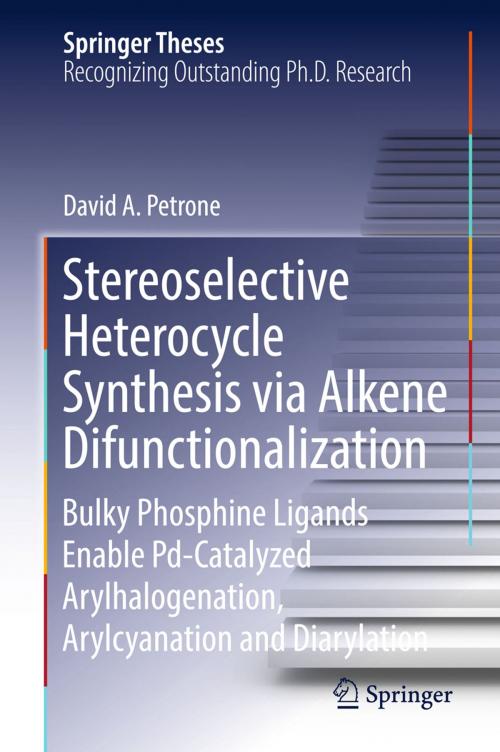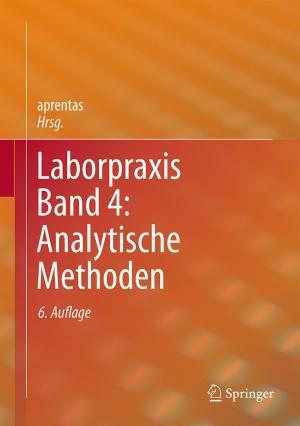Stereoselective Heterocycle Synthesis via Alkene Difunctionalization
Bulky Phosphine Ligands Enable Pd-Catalyzed Arylhalogenation, Arylcyanation and Diarylation
Nonfiction, Science & Nature, Science, Chemistry, Organic, Technical & Industrial| Author: | David A. Petrone | ISBN: | 9783319775074 |
| Publisher: | Springer International Publishing | Publication: | April 2, 2018 |
| Imprint: | Springer | Language: | English |
| Author: | David A. Petrone |
| ISBN: | 9783319775074 |
| Publisher: | Springer International Publishing |
| Publication: | April 2, 2018 |
| Imprint: | Springer |
| Language: | English |
This book investigates the use of palladium modified by bulky ligands as catalysts for new chemical transformations that rapidly assemble several classes of complex heterocyles. It documents the development of new chemical reactions involving carbon–carbon (C‒C) and carbon–halogen (C‒X) bond formation in the context of alkene difunctionalization and dearomatization reactions. Due to the ubiquity of heterocycles in bioactive natural products and life-improving pharmaceutical treatments, a long-term goal for synthetic organic chemists has been to develop novel and creative heterocycle syntheses that illicit a high degree of product diversity and are characterized by mild reaction conditions and limited waste production. A considerable fraction of leading pharmaceutical drugs contain at least one heterocycle within their chemical structure, and their prevalence in these technologies is strong evidence that the fundamental curiosities of organic chemistry lead to real-world solutions for the health and wellness of the global population.
This book investigates the use of palladium modified by bulky ligands as catalysts for new chemical transformations that rapidly assemble several classes of complex heterocyles. It documents the development of new chemical reactions involving carbon–carbon (C‒C) and carbon–halogen (C‒X) bond formation in the context of alkene difunctionalization and dearomatization reactions. Due to the ubiquity of heterocycles in bioactive natural products and life-improving pharmaceutical treatments, a long-term goal for synthetic organic chemists has been to develop novel and creative heterocycle syntheses that illicit a high degree of product diversity and are characterized by mild reaction conditions and limited waste production. A considerable fraction of leading pharmaceutical drugs contain at least one heterocycle within their chemical structure, and their prevalence in these technologies is strong evidence that the fundamental curiosities of organic chemistry lead to real-world solutions for the health and wellness of the global population.















